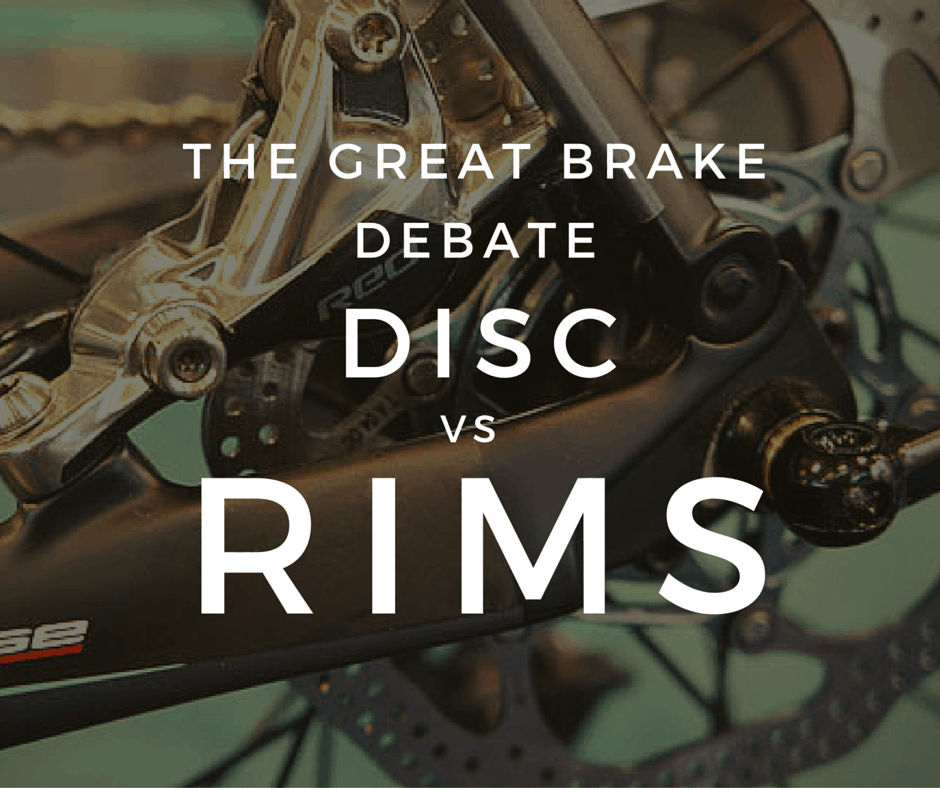- The Ultimate Guide to Women’s Specific Bikes - October 5, 2021
- Top Road Bikes Under $1000: Grab More Speed for Less Cash - October 5, 2021
- Get Fast! 8 Top Carbon Fiber Road Bikes Under $2,000 - October 5, 2021
Updated 5/1/16
Now ubiquitous on new bikes and slowly trickling into the pro field, disc brakes are proving to be much more than just the latest fad. But are road bicycle disc brakes really necessary? Should they be on your next bike?
Discs vs Rims: The Pros, Cons and questions surrounding road bicycle disc brakes
Why do more endurance road bikes have disc brakes than race bikes?
Cyclocross and mountain biking have been riding and racing with disc brakes for years, but the road world has been slower to warm up to this technology. While most of the new technology in cycling emerges in the pro peloton and then slowly trickles down, road bicycle disc brakes have been just the opposite.
With the exception of bikes used for the Spring Classics, disc brakes emerged at the endurance bike level. Because endurance bicycles aren’t bought to be raced, they don’t have to comply to the UCI’s strict rulebook.
Get Fast! Top 5 Carbon Fiber Road Bikes Under $2,000
Can I put disc brakes on the road bike I have now?
Only if it’s on a bike that was designed for disc brakes. Road bikes need to have a specific frame, fork and wheels in order to work with discs.
How much maintenance do disc brakes require?
Rim brakes are fairly straight forward: Bolt them on, center them and face them the correct way and then occasionally check the pads for wear. Road bicycle disc brakes can be a little more complicated to position correctly so that the rotors aren’t rubbing and hydraulic disc brakes require more maintenance than mechanical discs.
You’ll also need to bleed hydraulic disc brakes. Be prepared for more troubleshooting as rotors can bend and pads can get stuck or need to be realigned.
Either way, you should keep an eye on the brake pads and rotors, inspecting them for wear (thinner than 2.5m, replace the pads; replace rotors at 1.5mm). Keep any oils (even from your skin), degreasers and lubes off of the rotors, which can cause squealing brakes or reduced braking power.
Essential Bike Tools: Buyer’s Guide for the Beginner Mechanic
Pros
- Solid, precise braking and better brake modulation than rim brakes
- Increased stopping power in wet conditions
- More powerful overall, especially when compared to carbon rims with caliper brakes, which could help decrease factors that lead to some crashes. Carbon rims can develop hot spots which can compromise the integrity of the wheel.
- Excel during rides with frequent or prolonged braking
- Eliminates any brake rub with untrue wheels
- Allows the potential for rim redesigns that are lighter
- As popularity grows, the technology is slowly increasing as more options are appearing for wheels that accept both quick release and thru axles.
Cons
- Weight is still an issue, which is one of the main reasons why disc brakes are so popular on endurance bikes, as opposed to racing machines. For 2016, the Focus Cayo Disc is supposedly the lightest disc-ready carbon frame available (with a claimed weight of 880g)
- There is worry over the heat build-up on rotors
- Less aerodynamic
- Pricier than rim brakes
- Currently, there are more compatibility issues
- At the pro and racing level, discs raise a new level of concerns, as Philippe Gilbert expressed to Cycling Weekly . “For me it is a question of safety…If you crash and land on a disc, which is warm having braked before the crash, it can open you…You will never have every team on discs, but you couldn’t have some with and some without because that would cause crashes. The ones with discs will brake in 10 metres and the ones without 20 metres.”
Are disc brakes UCI legal?
As of this week (March, 2017), the UCI has administered another trial period. Injury and personal concern cut the first trial period short. Now disc brakes are back, after requiring the rotors to have smooth or chamfered edges.
The final word
As it stands now, most road bikes with disc brakes still come with a huge trade-off: cost, weight, and additional maintenance. Are you willing to spend more and potentially take on excess weight on the uphills just to have better braking power going down? If you often train or commute in wet conditions, the answer may very well be yes.
But if you love racing on the lightest equipment and swapping out wheels, you might not want to trade in your rim caliper brakes just yet. Just as electronic shifting once seemed so foreign and unnecessary, I’m now thankful every time my di2 shifts perfectly or I have to adjust the derailleur on the fly.
In time, and as the technology and price improves, I think disc brakes will be commonplace on endurance road bikes, but there widespread use on higher end racing bikes remains to be seen.
How to Buy a Bicycle: 5 Top Tips to Score the Perfect Bike
Additional Resources:
Want even more cycling hacks or to connect with a community of like-minded cyclists? Join us in our free Facebook Group.

